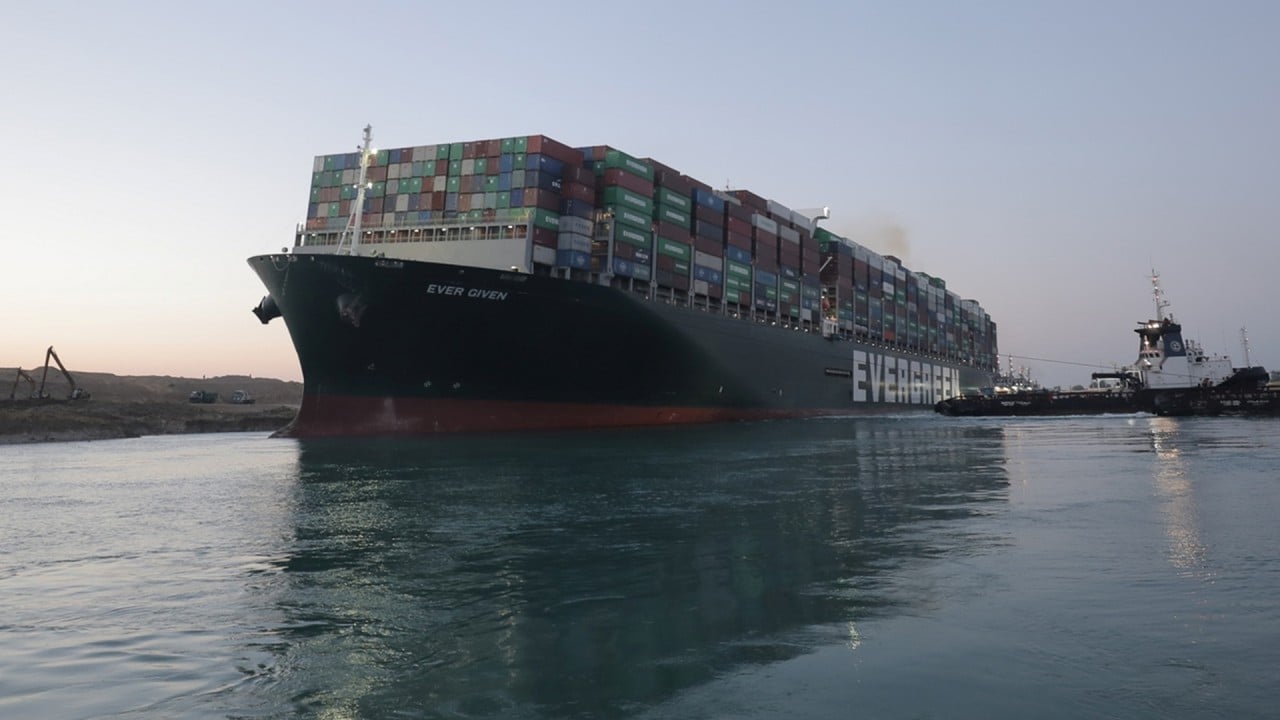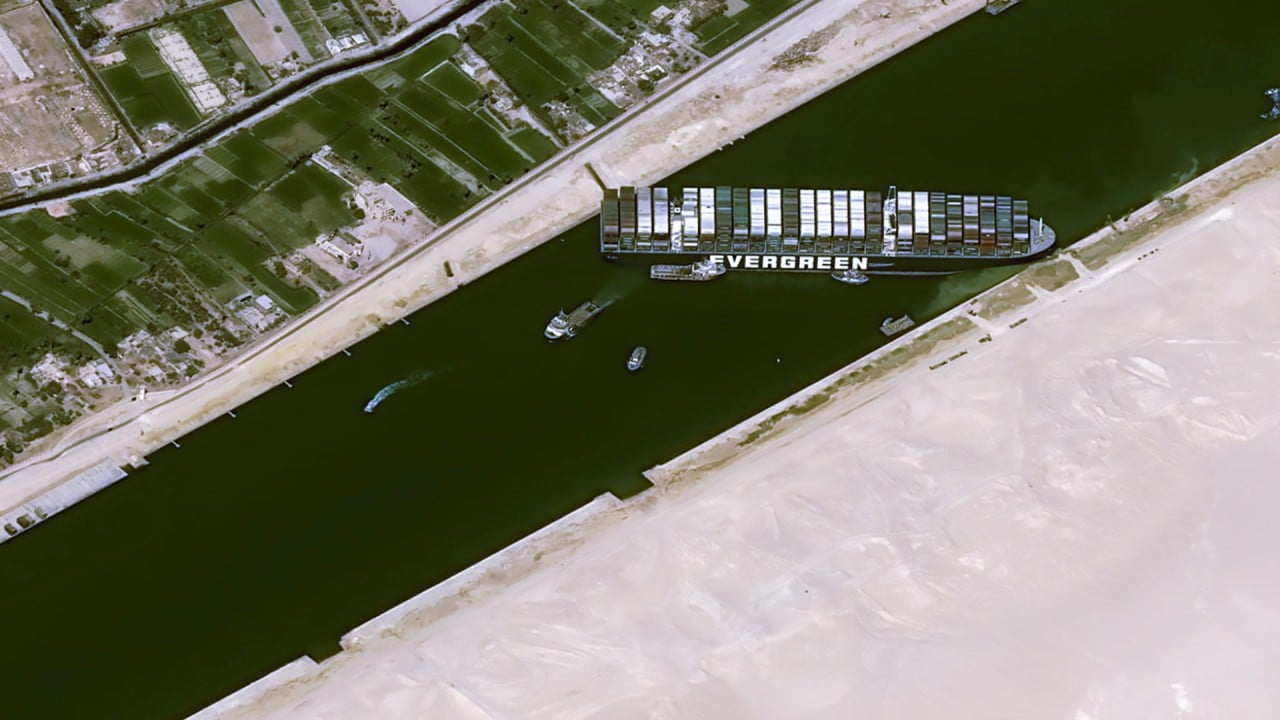
Suez Canal blockage: China to see minor raw material disruptions, but accident further exposes ‘risks’ of global supply chains
- The Suez Canal blockage will have limited impact on China’s economy, but may prompt firms to once again consider diversifying global supply chains
- The ultra-large container ship Ever Given has broken free from the banks of the Suez Canal after a five-day salvage effort, but the rescue mission is still under way
Any upheaval in the Chinese economy due to the blockage of the Suez Canal by a massive container ship is likely to be minimal given most of its intermediate supply chains are located in the Asia-Pacific region, economists and analysts say.
Although there will be some impact on China, it will be mostly limited to sectors such as battery and rubber manufacturing, which depend on intermediary raw materials from Europe, they added.
“Many of [Asia’s] intermediate supply chains are located within the Asia-Pacific region, which should initially mute the impacts of supply and price. Much depends upon the length of the shutdown of the canal,” said Steve Cochrane, Moody’s chief economist for the Asia-Pacific region.
The shutdown does, however, bring to light additional risk factors as firms reconsider global supply chains
“The shutdown does, however, bring to light additional risk factors as firms reconsider global supply chains. Geopolitical concerns rose to the forefront during the height of the US-China trade war. Covid-19 added another dimension as it illustrated differential approaches, and effectiveness, of policy and disaster preparedness across countries and regions.
“And now the closing of the canal illustrates risks to supply chains relative to choke points in transportation.”
But 367 carriers and vessels carrying key fuel such as oil and liquefied natural gas (LNG), containers of consumer goods and bulk materials are currently delayed on either side of the canal.
Consequently, the biggest casualty of the week-long traffic jam has been oil prices, although they have fallen since news of the partial refloating. The International Energy Agency has given assurance that global inventories of crude and refined oil products remain at comfortable levels.
China’s oil supply would not be severely impacted as less than 10 per cent of its crude imports had to travel through the canal, said Jean Zhou, an analyst at commodity intelligence services provider ICIS, in a note. Only one oil tanker, the Nordic Cygnus – bound for Tianjin port in north China from Novorossiysk in Russia – was currently stuck at the Red Sea anchorage of the canal, she added.
China’s LPG imports would also see limited disruption, ICIS analyst Wang Yan said. About 60 per cent of its LPG imports come from the Middle East and the rest from Africa, Australia and the US and none of them were shipped through the waterway, Yan said
But the blockage could cause disruptions in China’s synthetic rubber industry, as it imported raw materials from Europe. Likewise, European-imported copper cathodes, which are used in the production of rechargeable batteries such as lithium-ion batteries, could face supply shortages.
This should result in tighter synthetic rubber supply amid the concentrated scheduled turnaround in the second quarter in China
China is both the world’s biggest producer of synthetic rubber and lithium-ion battery products.
“Some regular synthetic rubber imports from Europe to Asia are expected to delay, at least one week as per the current situation,” ICIS analyst Ann Sun said.
“This should result in tighter synthetic rubber supply amid the concentrated scheduled turnaround in the second quarter in China.”
China’s polyester fibre exports to Europe could also sit idle as they waited for the blockage to be cleared, putting pressure on prices, said analyst Jimmy Zhang, who also works for ICIS. Europe imports about 15 per cent of China’s polyester fibre.
David Collins, from the firm China Manufacturing Consultants, said China’s car manufacturing industry would suffer disruptions, given it, like Europe, secured parts under a just-in-time system.
Rabobank China senior economist Raphie Hayat said there could be damage to foods – particularly perishable products – from China that were stuck in containers. As many of China’s exports to the Netherlands – where Ever Given was headed – and Europe tend to be consumer goods such as mobile phones and computers, availability of those goods could be scarce for a while.
Shipping company Maersk’s China operation, however, said it was too early to determine the cost to Chinese supply chains. The company, which has three vessels stuck in the canal and 29 vessels waiting outside it, with more expected to join the queue on Monday, said it had already redirected 15 boats with goods from China and Asia around the Cape of Good Hope on Africa’s southern tip.
In general, the blockage would not have a lasting impact on China’s economy or force changes to its supply chains, especially with it clearing, according to Aidan Yao, senior economist at AXA Investment Managers China.



